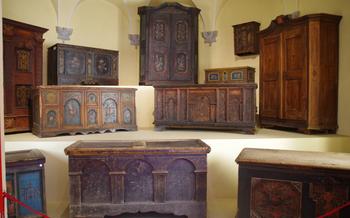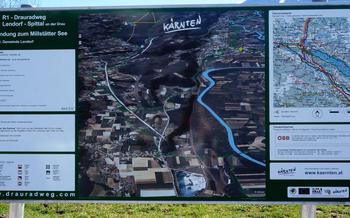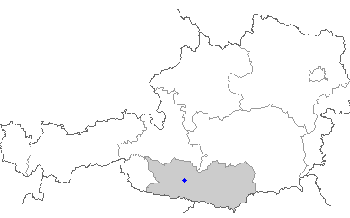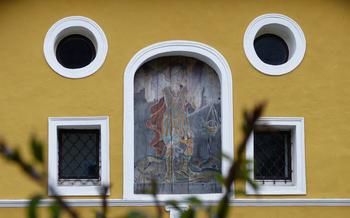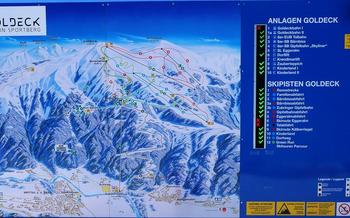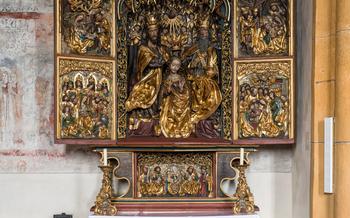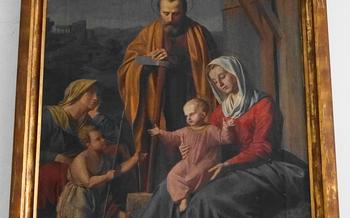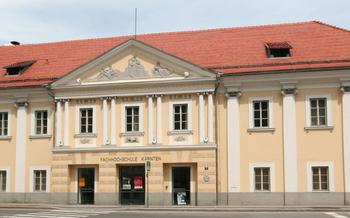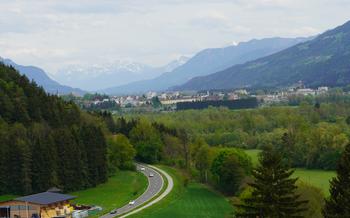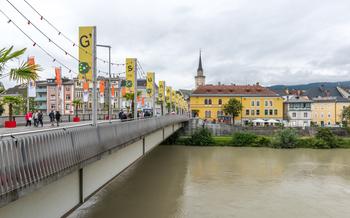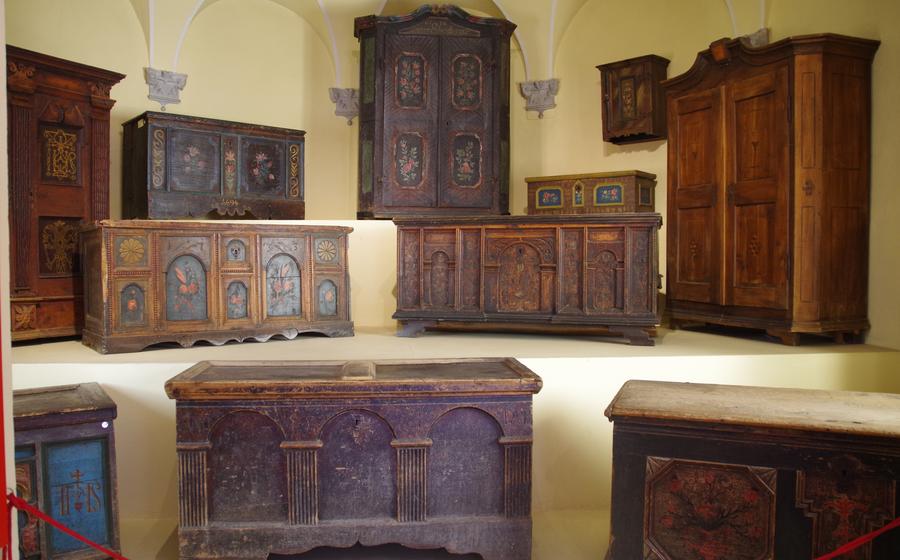
Museum für Volkskultur Schloss Porcia
- Museum für Volkskultur Schloss Porcia: A Cultural Tapestry in the Heart of Carinthia
- Permanent Exhibitions: Delving into the Region's Heritage
- Educational Programs: Engaging Visitors of All Ages
- Events and Veranstaltungen: A Vibrant Cultural Calendar
- Research and Publications: Preserving and Sharing Knowledge
- Architecture and Surroundings: A Historical and Picturesque Setting
- Accessibility and Visitor Information: Planning Your Visit
- Museum Shop: Unique Souvenirs and Local Crafts
- Café and Restaurant: Culinary Delights in a Historic Setting
- Family-Friendly Activities: Engaging Children and Families
- Local Partnerships and Collaborations: Fostering Cultural Exchange
- Sustainable Practices: Preserving Heritage for Future Generations
- Behind-the-Scenes Tours: A Glimpse into Museum Operations
Museum für Volkskultur Schloss Porcia: A Cultural Tapestry in the Heart of Carinthia
Situated amidst the picturesque landscapes of Spittal an der Drau, the Museum für Volkskultur Schloss Porcia stands as a testament to the rich cultural heritage of Carinthia. Housed within the historic Schloss Porcia, a magnificent Renaissance-style palace, the museum invites visitors to embark on a journey through time, exploring the region's traditions, customs, and way of life.
The museum's location in Spittal an der Drau, a charming town nestled along the Drau River, is of great historical significance. Spittal, with its strategic position on ancient trade routes, served as a crossroads for cultures and influences from across the Alps. The town's rich history is reflected in the museum's collection, which showcases artifacts and exhibits that tell the story of Carinthia's diverse past.
Schloss Porcia, the museum's architectural masterpiece, is a sight to behold. Built in the 16th century, the palace boasts intricate Renaissance details, elegant arcades, and a grand inner courtyard. The fusion of architectural styles, from Gothic to Renaissance, reflects the region's rich history and cultural influences. Within the castle's walls, visitors will discover a treasure trove of artifacts, interactive exhibits, and immersive displays that bring to life the stories of Carinthia's people.
Permanent Exhibitions: Delving into the Region's Heritage
The Museum für Volkskultur Schloss Porcia houses a wealth of permanent exhibitions that showcase the rich history and diverse culture of Carinthia. These exhibitions are meticulously curated to provide visitors with an immersive and interactive experience, allowing them to delve into the region's traditions, customs, and way of life.
Thematic sections guide visitors through various aspects of Carinthian culture. One section focuses on traditional crafts, displaying intricate wood carvings, pottery, and textiles that demonstrate the region's artistic heritage. Another section explores the region's customs and festivals, showcasing traditional costumes, musical instruments, and ceremonial objects that bring to life the vibrant celebrations of Carinthia.
Interactive displays and exhibits add a dynamic element to the museum experience. Visitors can engage with multimedia presentations, touchscreens, and hands-on activities that provide deeper insights into regional history and culture. These interactive elements make learning fun and accessible for visitors of all ages, fostering a sense of connection with the region's heritage.
Among the many artifacts on display, one standout is the "Trachtenstube," a room dedicated to traditional Carinthian costumes. Here, visitors can admire an array of colorful and intricately embroidered garments, including the iconic "Kärntner Tracht," worn during special occasions and celebrations.
The permanent exhibitions at the Museum für Volkskultur Schloss Porcia serve as a testament to the region's rich cultural heritage. They offer visitors a unique opportunity to explore and understand the traditions, customs, and daily life of Carinthia, creating a lasting impression of the region's unique identity.
Educational Programs: Engaging Visitors of All Ages
The Museum für Volkskultur Schloss Porcia goes beyond its role as a custodian of history and culture; it also serves as a vibrant platform for education and engagement. The museum offers a diverse range of educational programs tailored to visitors of all ages, fostering a love for history and culture among the younger generation.
One of the museum's key initiatives is interactive workshops that provide hands-on experiences for children and families. These workshops delve into traditional crafts, such as pottery, weaving, and woodcarving, allowing participants to learn about and engage with the region's rich heritage.
Guided tours are another popular educational offering, led by knowledgeable museum guides who bring history to life. These tours cater to different age groups and interests, providing insights into the museum's collections, regional customs, and the stories behind the artifacts.
The museum also collaborates with local schools to develop educational programs that align with school curricula. These programs bring students to the museum for interactive learning sessions, workshops, and hands-on activities, fostering a deeper understanding of their local culture and history.
The success of the museum's educational programs is evident in the enthusiasm and engagement of the participants. Children leave the museum with a newfound appreciation for the region's heritage, while adults gain a deeper understanding of the local culture. These programs play a vital role in preserving and promoting the rich traditions of Carinthia, ensuring that future generations continue to value and celebrate their cultural identity.
Events and Veranstaltungen: A Vibrant Cultural Calendar
The Museum für Volkskultur Schloss Porcia is not merely a repository of history; it is a vibrant hub of cultural activity that hosts a diverse range of events and Veranstaltungen throughout the year. These events bring the museum to life, creating a dynamic space for cultural exchange and community engagement.
One of the most popular events is the annual Schloss Porcia Sommerfest, a summer festival that takes place in the picturesque courtyard of the museum. The festival showcases traditional Carinthian music, dance, and culinary delights, immersing visitors in the region's rich cultural heritage.
Another highlight is the Lange Nacht der Museen, or Long Night of Museums, when the museum stays open late and offers free admission. This event provides a unique opportunity to explore the museum's exhibitions and collections after hours, creating a magical atmosphere that enhances the visitor experience.
The museum also hosts regular workshops, lectures, and film screenings, inviting experts and enthusiasts to share their knowledge and insights on various aspects of regional history and culture. These events foster dialogue and encourage a deeper understanding and appreciation of Carinthia's rich heritage.
By hosting these diverse events and Veranstaltungen, the Museum für Volkskultur Schloss Porcia becomes a meeting point for the community, a place where people of all ages can come together to celebrate, learn, and connect with their cultural roots.
Research and Publications: Preserving and Sharing Knowledge
The Museum für Volkskultur Schloss Porcia is not merely a repository of artifacts but also a hub of scholarly research and knowledge production. Its in-house research team delves deep into the history and culture of Carinthia, conducting comprehensive studies and uncovering new insights into the region's past.
The museum's commitment to research is evident in its impressive publications. Over the years, it has produced a wealth of books, journals, and articles that have significantly contributed to the field of regional history and cultural studies. These publications serve as valuable resources for scholars, students, and anyone interested in gaining a deeper understanding of Carinthia's heritage.
Among the museum's notable publications is the "Carinthian Yearbook for Cultural History" (Jahrbuch für Kulturgeschichte). This annual publication features a collection of scholarly articles, essays, and reviews on various aspects of Carinthian history, art, and folklore. It has become a respected platform for researchers to share their findings and engage in academic discourse.
The museum's research extends beyond its own walls, as it actively collaborates with universities, research institutions, and cultural organizations throughout Austria and beyond. These collaborations result in joint projects, conferences, and publications that further enrich the understanding of Carinthia's cultural heritage.
Through its dedication to research and publications, the Museum für Volkskultur Schloss Porcia plays a vital role in preserving and disseminating knowledge about the region's past. Its contributions to scholarship have earned it recognition as a leading institution in the field of Carinthian cultural studies.
Architecture and Surroundings: A Historical and Picturesque Setting
Schloss Porcia, the architectural gem that houses the Museum für Volkskultur, stands as a testament to the rich history and cultural heritage of Spittal an der Drau. Built in the 16th century, the Renaissance-style castle boasts intricate architectural details, adorned with ornate facades, delicate loggias, and elegant courtyards. Its grand presence dominates the historic center of Spittal an der Drau, harmoniously blending with the surrounding medieval streets and buildings.
Beyond its architectural significance, Schloss Porcia is beautifully integrated into the picturesque surroundings of Spittal an der Drau. Nestled amidst the stunning landscapes of Carinthia, the museum offers breathtaking views of the surrounding mountains, lush valleys, and sparkling lakes. Visitors can stroll through the serene gardens, admiring the vibrant blooms and manicured lawns, while enjoying the fresh air and tranquility of the natural setting.
The harmonious blend of history and nature that surrounds the Museum für Volkskultur enhances the visitor experience, creating a truly memorable and immersive journey into the region's rich cultural heritage.
Accessibility and Visitor Information: Planning Your Visit
Planning a visit to the Museum für Volkskultur Schloss Porcia is a breeze with its convenient location and accessible facilities. The museum is open to the public from Tuesday to Sunday, with varying hours depending on the season, so be sure to check their website for specific times. Standard admission fees apply, with discounted rates for seniors, students, and groups. To enhance your visit, guided tours led by knowledgeable museum staff are available in multiple languages. These tours provide an immersive and informative experience, allowing visitors to delve deeper into the museum's collections and stories.
For those with reduced mobility, the museum is wheelchair accessible, with elevators and ramps ensuring easy navigation. Additionally, special accommodations can be made upon request to ensure a comfortable and enjoyable visit for all. To make the most of your time at the museum, plan to spend at least two hours exploring the permanent and temporary exhibitions, participating in interactive activities, and immersing yourself in the region's rich history and culture.
Museum Shop: Unique Souvenirs and Local Crafts
The Museum für Volkskultur Schloss Porcia houses a charming museum shop that serves as a treasure trove of regional handicrafts and souvenirs. Here, visitors can find a diverse selection of unique items that reflect the local culture and heritage of Carinthia. From intricately carved wooden figurines and hand-painted ceramics to traditional textiles and artisanal jewelry, the museum shop offers a delightful array of products that celebrate the region's rich craftsmanship.
One of the highlights of the museum shop is its collection of hand-blown glass ornaments. These delicate and colorful creations are crafted by local artisans using traditional techniques, making each piece a unique work of art. Visitors can choose from a variety of shapes, sizes, and colors, ensuring that they find the perfect ornament to commemorate their visit to the museum and the region.
The museum shop also features a selection of traditional Carinthian clothing, including hand-embroidered blouses, lederhosen, and dirndls. These garments are not only beautiful but also incredibly comfortable to wear, making them a popular choice among locals and visitors alike. Whether you're looking for a unique souvenir or a special gift for a loved one, the Museum für Volkskultur Schloss Porcia's museum shop is the perfect place to find something truly special.
Café and Restaurant: Culinary Delights in a Historic Setting
Nestled within the historic walls of Schloss Porcia, the café and restaurant offer a culinary journey through time. Savor the flavors of Carinthian cuisine while immersing yourself in the museum's unique ambiance. The menu features an array of traditional dishes prepared with fresh, locally sourced ingredients. Indulge in hearty specialties like "Kärntner Kasnudln" (cheese dumplings) or "Reindling" (swirl cake), accompanied by a glass of regional wine. The café also serves lighter options, such as homemade pastries and freshly brewed coffee, perfect for a break between exploring the museum's exhibits. Whether you choose to dine in the elegant dining room or relax in the charming courtyard, the café and restaurant at Museum für Volkskultur Schloss Porcia provide a delightful culinary experience that complements the museum's cultural offerings.
Family-Friendly Activities: Engaging Children and Families
The Museum für Volkskultur Schloss Porcia recognizes the importance of engaging younger visitors and families in cultural exploration. To this end, the museum offers a range of interactive exhibits, workshops, and activities specifically designed to capture the imagination of children and families. These programs aim to make history and culture accessible and enjoyable for visitors of all ages.
One highlight is the museum's hands-on workshop, where children can engage in traditional crafts and activities such as pottery, weaving, or woodcarving. Guided tours tailored for families provide an engaging and educational experience, allowing children to ask questions and interact with knowledgeable guides.
The museum also hosts regular events and programs that cater to families. These events may include storytelling sessions, themed exhibitions, or interactive demonstrations that bring history to life. By creating a welcoming and educational environment, the Museum für Volkskultur Schloss Porcia encourages families to learn, explore, and create memories together.
Local Partnerships and Collaborations: Fostering Cultural Exchange
The Museum für Volkskultur Schloss Porcia has established strong partnerships with various local organizations, institutions, and businesses to enrich its offerings and foster cultural exchange. These collaborations have resulted in a diverse range of initiatives and events that enhance the museum's impact on the community.
One notable partnership is with the Spittal an der Drau Tourism Association. Together, they organize guided tours that combine visits to the museum with explorations of the town's historic center, showcasing the region's cultural heritage.
Another successful collaboration is with the Carinthian Folklore Society. The museum and the society jointly host workshops, lectures, and demonstrations that delve into Carinthian folk traditions, music, and dance. These events provide a platform for local experts to share their knowledge and skills with visitors.
The museum also works closely with local artisans and craftspeople to promote traditional Carinthian crafts. Through exhibitions, workshops, and sales opportunities, the museum supports the preservation of these skills and ensures that visitors can take home unique souvenirs that represent the region's rich heritage.
These partnerships not only enhance the museum's offerings but also contribute to the vitality of the local cultural scene. By fostering collaboration and exchange, the Museum für Volkskultur Schloss Porcia plays a crucial role in promoting cultural understanding and community engagement.
Sustainable Practices: Preserving Heritage for Future Generations
The Museum für Volkskultur Schloss Porcia is committed to sustainable practices and environmental responsibility, recognizing the importance of preserving cultural heritage for future generations. The museum has implemented several initiatives to reduce its ecological footprint and promote sustainability. One notable effort is the museum's energy-efficient lighting system, which minimizes energy consumption while ensuring adequate illumination for exhibits and displays.
Furthermore, the museum has adopted a comprehensive recycling program, ensuring that waste is properly sorted and recycled. This initiative contributes to reducing the museum's environmental impact and supports the circular economy. By incorporating sustainable practices into its operations, the Museum für Volkskultur Schloss Porcia sets an example for other cultural institutions and demonstrates its commitment to protecting the environment while preserving cultural heritage.
Visitors to the museum can contribute to sustainability by following simple practices such as reducing plastic waste and conserving water. The museum's commitment to sustainability extends beyond its own operations, as it actively collaborates with local organizations and businesses that share similar values. By working together, the museum and its partners strive to create a more sustainable and environmentally conscious community.
Behind-the-Scenes Tours: A Glimpse into Museum Operations
The Museum für Volkskultur Schloss Porcia offers exclusive behind-the-scenes tours, providing visitors with a unique opportunity to delve deeper into the inner workings of the museum. These tours take you on a journey through the museum's hidden corners, revealing the secrets behind its collections, conservation practices, and research activities.
Join a knowledgeable guide who will lead you through restricted areas, such as the museum's storage facilities, conservation labs, and research library. Learn about the intricate processes involved in preserving and cataloging artifacts, and gain insights into the research projects that contribute to our understanding of regional history and culture.
These behind-the-scenes tours offer a fascinating glimpse into the world of museum professionals and provide a deeper appreciation for the dedication and expertise required to maintain and share cultural heritage. Don't miss this chance to uncover the hidden treasures of the Museum für Volkskultur Schloss Porcia and gain a unique perspective on the museum's operations.
